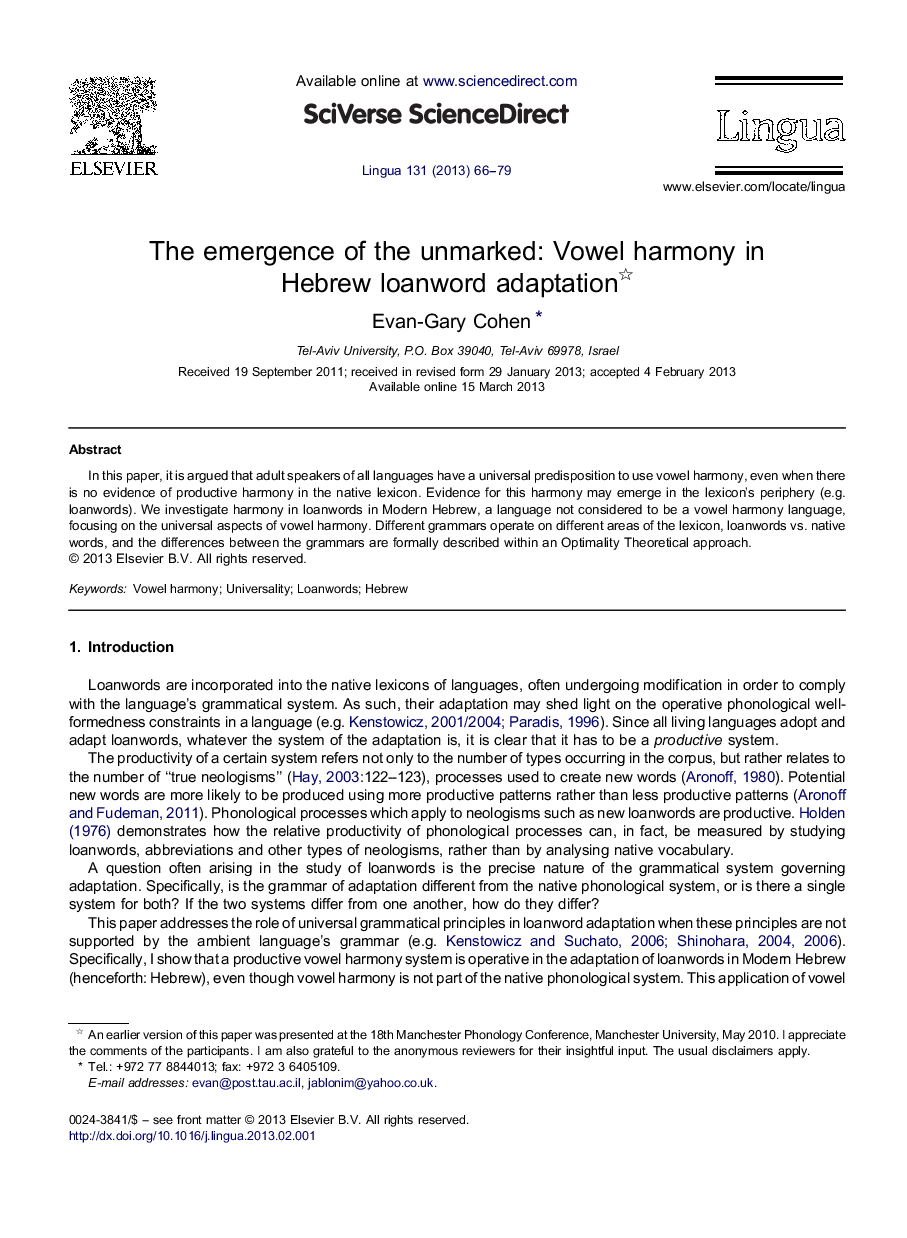| Article ID | Journal | Published Year | Pages | File Type |
|---|---|---|---|---|
| 935345 | Lingua | 2013 | 14 Pages |
In this paper, it is argued that adult speakers of all languages have a universal predisposition to use vowel harmony, even when there is no evidence of productive harmony in the native lexicon. Evidence for this harmony may emerge in the lexicon's periphery (e.g. loanwords). We investigate harmony in loanwords in Modern Hebrew, a language not considered to be a vowel harmony language, focusing on the universal aspects of vowel harmony. Different grammars operate on different areas of the lexicon, loanwords vs. native words, and the differences between the grammars are formally described within an Optimality Theoretical approach.
► I investigate the role of universal principles in loanword adaptation. ► Vowel harmony in loanword in Modern Hebrew is discussed. ► A formal Optimal Theoretic model of vowel harmony is presented. ► The harmony system presented is argued to be universally, rather than language-specifically, motivated.
